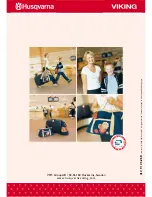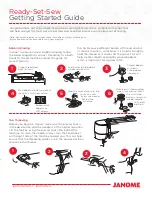
20
1.
2.
3.
4.
Sewing
Sewing Zippers
The zipper foot E can be snapped on so that it
is located either to the right or to the left of the
needle, making it easy to sew both sides of the
zipper. To sew the other side of the zipper, repo-
sition the zipper foot.
Lapped Zipper
1.
Sew the seam together to the bottom of the
zipper placket. Baste the rest of the seam.
Leave about 2 cm open at the top. Press seam
open.
Set the needle to the right position.
2.
Place presser foot E to the left of the needle.
From the wrong side fold the fabric to one
side so both seam allowances are free. Fold
and press the left allowance under approxi-
mately 0.5 cm from the basted seam.
3.
Place the zipper under the folded seam allow-
ance with the teeth as near to the fold as pos-
sible and stitch zipper to fabric close to fold.
Begin sewing at the bottom of the zipper.
Before reaching the zipper pull, lift the presser
foot and slide the zipper pull down past the
zipper foot. Lower the foot and sew to the top
of the zipper.
4.
Snap on the zipper foot so it is to the right of
the needle.
Set the needle to the left posi-
tion.
Turn the garment to the right side. It is
important that the seam on the right side is
sewn straight. Before you begin to sew, mark
the seam line. Sew the other side of the zipper.
Begin stitching across the bottom and con-
tinue upwards. Remove the basting.
If you want to sew a ”gentleman’s zipper”, follow
the instructions but insert in the other direction.















































